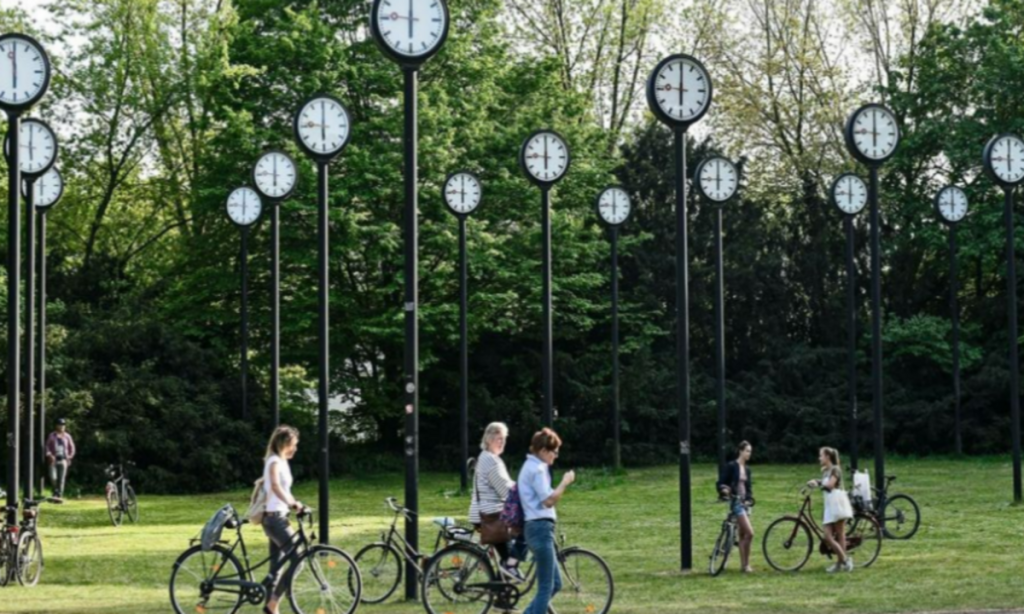For years, Texas lawmakers have debated the need to end the practice of changing clocks twice a year for Daylight Saving Time (DST). Many believe it is an outdated system that disrupts sleep patterns, impacts productivity, and even increases health risks.
As the debate gains momentum in 2025, multiple bills have been introduced to establish a fixed year-round time system in Texas, sparking renewed discussions among legislators, health experts, and the public.
Legislative Proposals
Several bills have been introduced in the Texas Legislature to address the issue of biannual clock changes:
House Bill 1422 (2023): Introduced by Rep. Will Metcalf, this bill proposed keeping Texas on DST year-round. It passed the Texas House with overwhelming bipartisan support, receiving a 138-5 vote. However, for the measure to take effect, it requires federal approval, as current U.S. law does not allow states to adopt permanent DST without congressional authorization.
Senate Bill 64 (2025): Filed by Sen. Judith Zaffirini, this bill suggests adopting standard time year-round. This approach is the only option currently permitted under federal law. Zaffirini has been vocal about the negative effects of DST, stating that studies have linked time changes to increased car accidents, negative health outcomes, and decreased productivity.
The Sunshine Protection Act: A federal bill that has been reintroduced in Congress multiple times, aiming to make DST the permanent time standard across the U.S. In 2022, the U.S. Senate passed the measure unanimously, but it stalled in the House. If it were to pass in the future, Texas could legally adopt permanent DST without additional federal approval.
Health and Safety Concerns
Health experts are divided on whether Texas should remain on standard time or DST. However, most agree that eliminating the time changes would have positive effects on sleep and overall health. The American Academy of Sleep Medicine (AASM) supports permanent standard time, stating that it aligns better with human circadian rhythms and reduces health risks such as:
Increased risk of heart attacks and strokes
Mood disturbances and higher rates of depression
More traffic accidents due to drowsy driving
Workplace injuries and reduced productivity
Studies from Johns Hopkins University and the American Medical Association have shown that DST disruptions can result in increased emergency room visits and hospitalization rates. Experts emphasize that whatever time Texas chooses, consistency is key to avoiding these harmful effects.
Public Opinion and Economic Factors
Public sentiment is mixed on whether Texas should adopt permanent DST or standard time, but most people support eliminating the seasonal clock changes. According to a survey by the American Academy of Sleep Medicine:
50% support ending seasonal time changes
26% prefer to keep the current system
24% are undecided
Advocates for permanent DST argue that longer daylight hours in the evening would benefit businesses, tourism, and outdoor activities. However, opponents claim that darker winter mornings could pose risks for school children and early morning commuters.
Challenges and the Road Ahead
Even if Texas lawmakers pass a bill to end the time changes, challenges remain. Federal approval is required for the state to adopt permanent DST, meaning Texas must wait for Congress to act on the Sunshine Protection Act. On the other hand, if lawmakers choose permanent standard time, Texas can implement the change immediately without federal intervention.
Governor Greg Abbott has not yet taken an official stance, but several state officials have expressed interest in resolving the issue once and for all.
Conclusion
As Texas lawmakers push forward with legislative efforts to end the biannual time change, the debate remains heated over whether DST or standard time should become permanent. Health concerns, economic implications, and federal regulations all play a role in shaping the outcome. While the future of timekeeping in Texas is still uncertain, what is clear is that many Texans are ready to stop changing their clocks twice a year.
Disclaimer—Our team has checked this article to ensure its accuracy and eliminate any misinformation. We are committed to providing clear and reliable information for our readers.


